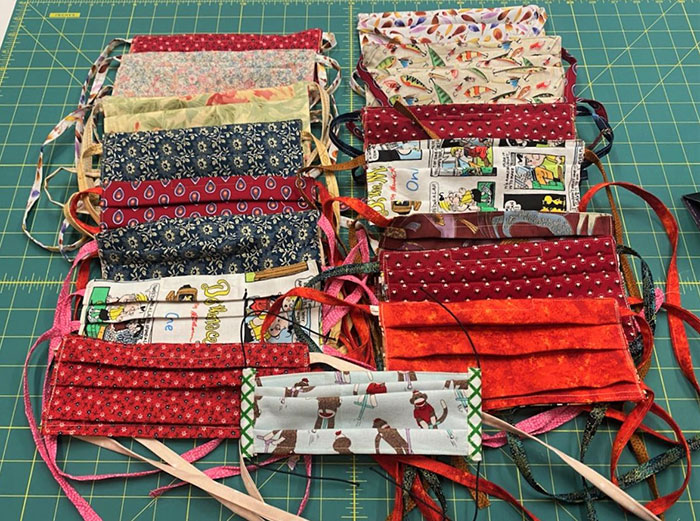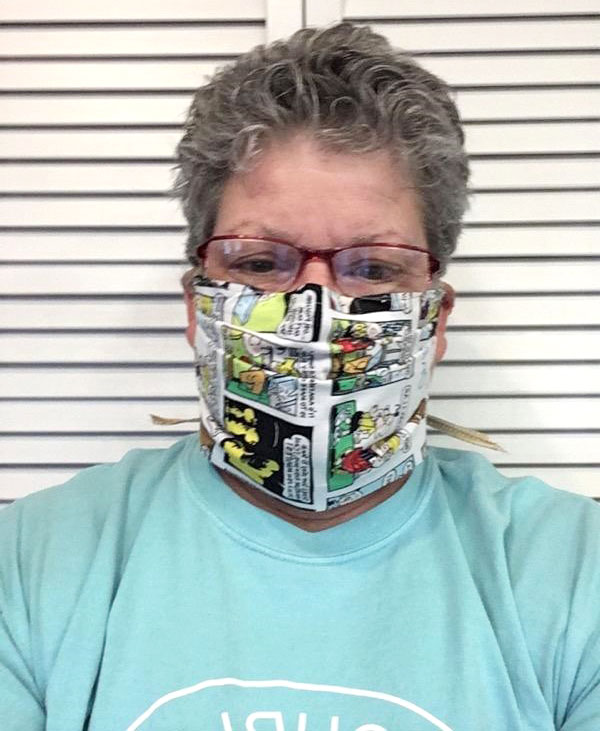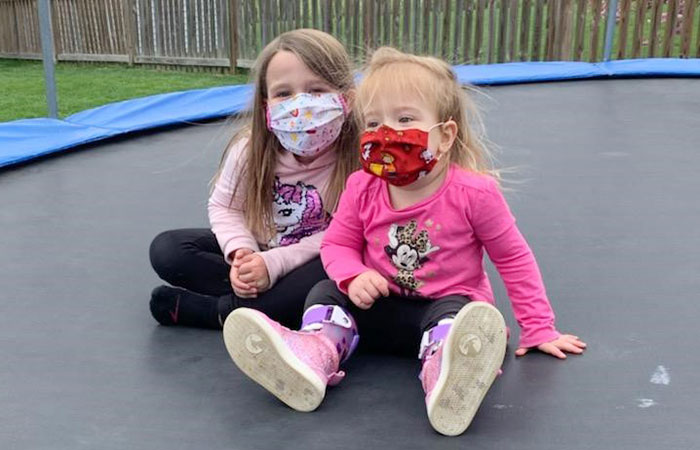USAMMDA logistics analyst stitches hundreds of masks for the Frederick community

During the COVID-19 pandemic, self-care has become essential. However, there is a special group of people around the world who are pushing beyond self-care and doing what they can to provide protection for others. Marie Cochran, a retired Army lieutenant colonel medical logistician, is one of these people.
Cochran currently supports the U.S. Army Medical Materiel Development Activity as a logistics management specialist for the Warfighter Deployed Medical Systems Project Management Office's Medical Modernization Product Management Office, where she continues to serve and support our Warfighters and the community. It should come as no surprise that at the end of the day, Cochran uses her free time to support her community by donating face masks. And not just any face masks: she has handmade over 150 face masks, and counting, to help protect the Frederick, Maryland, community against the coronavirus.
"I wouldn't be surprised if many more USAMMDA and [U.S. Army Medical Research and Development Command] personnel have been doing the same thing. It's a crazy time, and we need to look out for each other," said Cochran.

She started making masks in March when the virus began affecting the surrounding Frederick area. She overheard a colleague of hers, who is an essential worker, talking about how his chin, nose and ears would get rubbed raw after a full day of wearing a standard-issue mask. Cochran realized that she could take her years of quilting experience and use her skills for the greater good. She spoke to her quilting friends, and they all decided to start making comfortable quilt masks to donate.
Health experts say masks help prevent the spread of coronavirus by blocking the spread of bodily fluids that may contain germs. Cochran supplied masks to adults and children at Frederick Memorial Hospital, clinics, nursing homes, the D.C.-Maryland-Virginia Million Mask Challenge, her local post office, neighbors, friends and coworkers.
"It is no surprise to me that Marie has spent her own time making masks for coworkers and the community," said Army Col. Gina Adam, USAMMDA commander. "She is someone who cares deeply about those around her, and through her acts of service, continues to give to the community."
In addition to first responders and caregivers needing masks, Maryland Gov. Larry Hogan has mandated that all Maryland residents wear face masks in retail stores and while riding on public transit.
"I am the family shopper, so I was a bit worried when I couldn't order masks online due to long backorders," said Army Capt. Scott Wynocker, assistant product manager for the WDMS PMO's Medical Devices Assemblage Management Product Management Office. "My family was incredibly blessed when we received our masks made by Marie."

It turns out, making a face mask is more than just sewing – it is a science. Cochran uses two layers of dense high-quality quilting fabric to prevent breath from escaping. She said medical facilities like to be able to put an additional filter, like dried sanitizer wipes or coffee filters, in between the layers of the mask. She is engineering the masks to have an open pocket on the bottom to insert filtration, and the masks are accordion-style so they stretch over the nose. She uses a small bendable aluminum wire to make little bridges over the nose which can be pinched down for people with glasses.
"I try to give everyone two, one to wash and one to wear. I also try to make them out of happy joyous fabric so people see them and smile," said Cochran.
Although Cochran herself has made 150 masks, together with her quilting team, they have made thousands. And they won't stop here. They plan to continue making face masks until people don't need them anymore, and the virus subsides.













